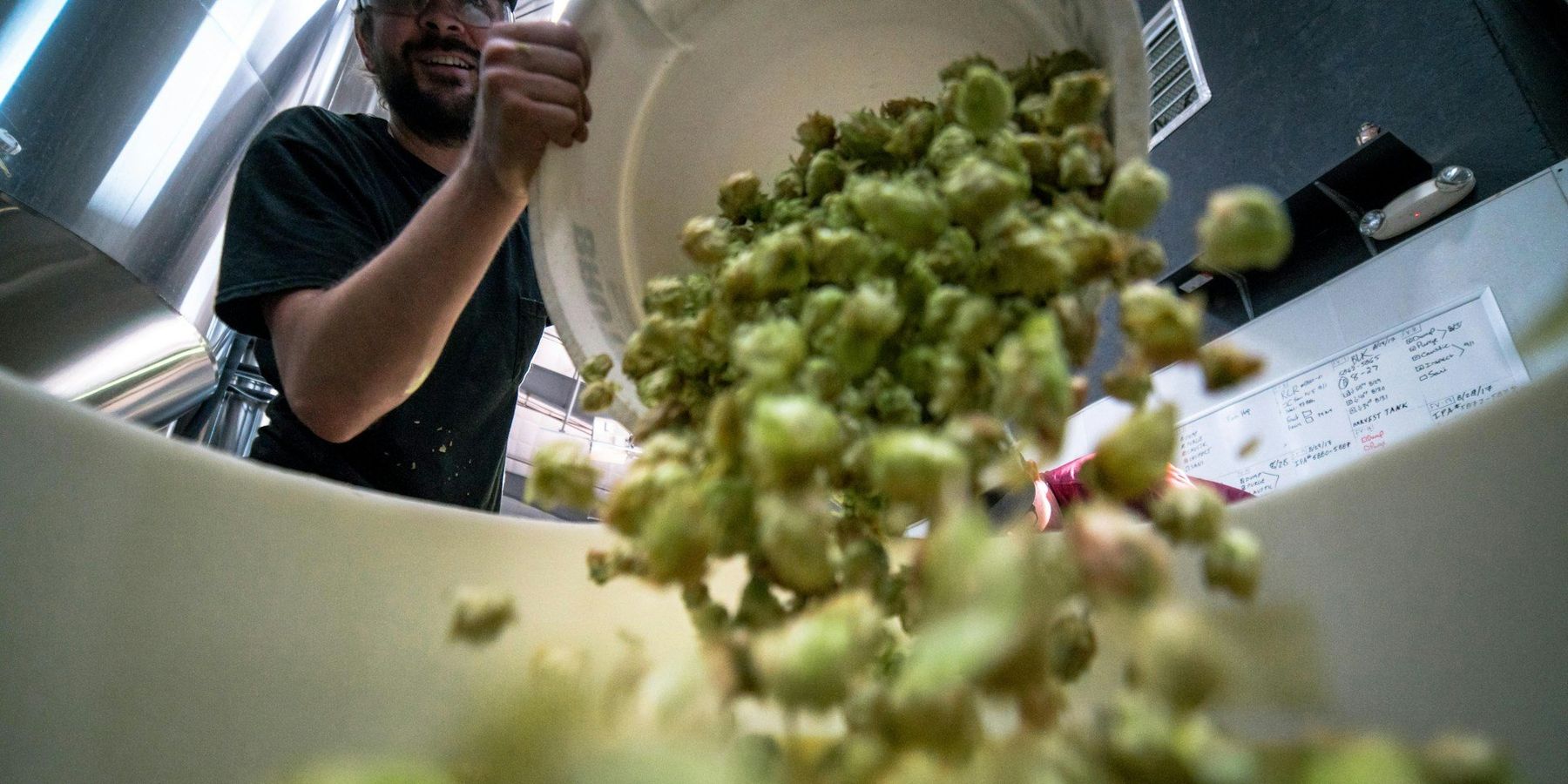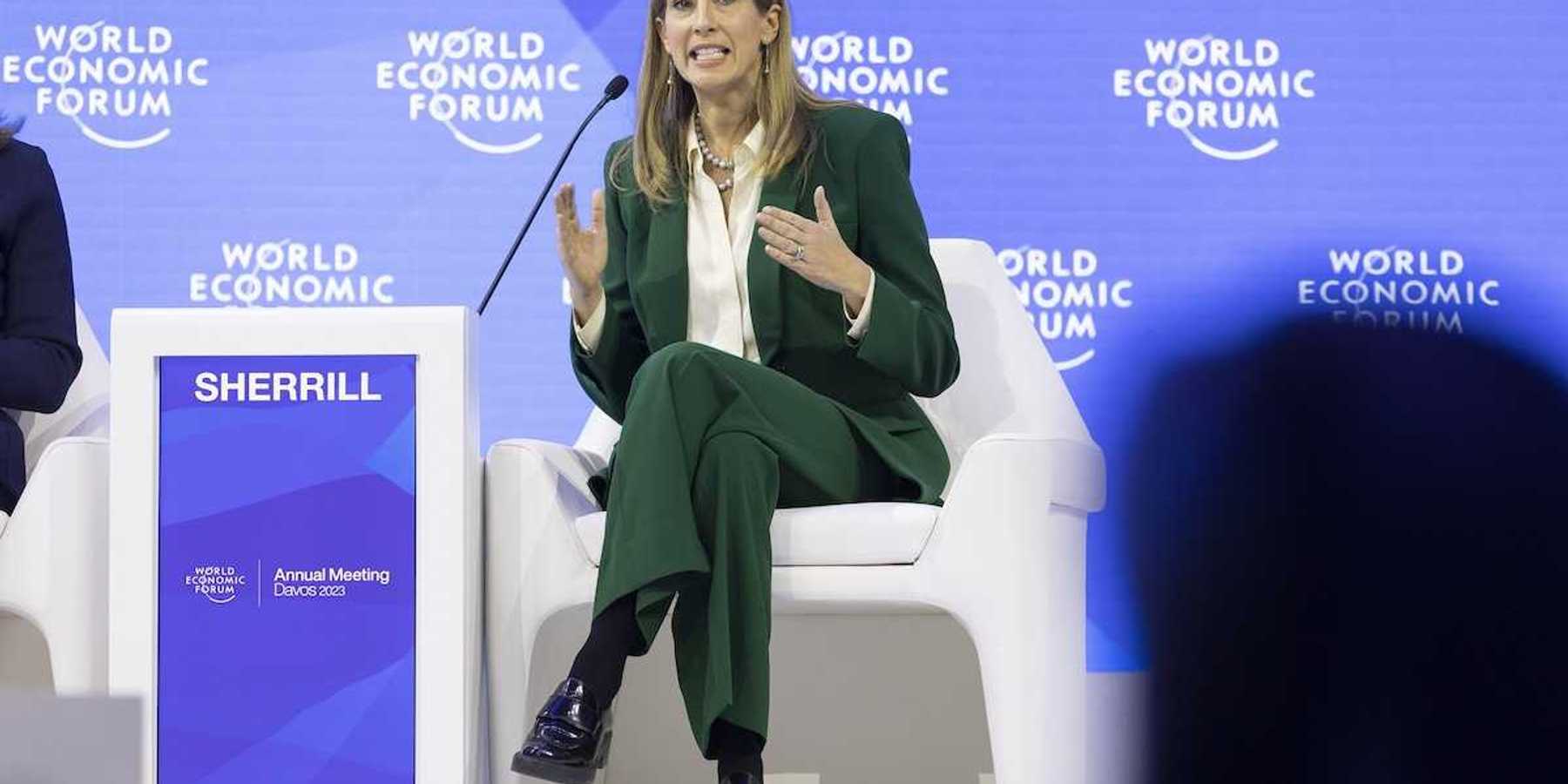
Op-ed: New White House strategy backs food rescue efforts but more is needed to fight hunger and waste
Food waste statistics are moving in the wrong direction.
At the same time, the U.S. continues to struggle with massive amounts of food waste. Fortunately, by reducing that waste, we can help lower grocery bills and mitigate contributions to continued warming.
Food waste is a significant contributor to climate change: its breakdown accounts for 58% of landfill methane emissions. As food waste increases, emissions continue to climb, exacerbating climate change and increasingly inhospitable conditions for agricultural production.
Though it may be most visible to consumers, household waste is not the greatest contributor of discarded food. In fact, 38% of food (either domestic or imported) is wasted and nearly half of that waste is generated between harvest and point of sale. This statistic is especially shocking considering that 44 million people in the U.S. experience food insecurity. U.S. Environmental Protection Agency (EPA) data reveal that 9 billion pounds of quality, nutritious food is thrown away each year.
To address this problem, the Biden-Harris administration released its National Strategy to Reduce Food Loss and Waste and Recycle Organics on June 12, 2024. This strategy proposes actions that reflect four objectives: preventing food loss, preventing food waste, promoting recycling of organic waste, and supporting food waste management policy.
One action proposed is increasing funding for the U.S. Department of Agriculture (USDA) National Institute of Food and Agriculture to encourage research opportunities and food waste data collection. Another promotes involvement of the Risk Management Agency with farmers, crop insurance agents, and food rescue organizations to minimize on-farm food loss. The strategy aims to make progress toward the U.S. Food Loss and Waste 2030 Champions Pledge, a joint goal between the USDA, the EPA, and partnering businesses that aims for a 50% reduction in national food loss and waste by 2030.
Despite these efforts, waste statistics are moving in the wrong direction. The most recent 2019 EPA data show a steady increase in waste production since the pledge was announced in 2015. Supply chain disturbances during the COVID-19 pandemic likely slowed progress on food waste reduction, but this cannot be confirmed without updated data. More recent data are needed to provide an objective view of the nation’s current food waste production and a useful benchmark as the 2030 deadline approaches.
Moving the needle in the opposite direction will rely on changes to key policies—in addition to changes in practices by consumers and producers. The current 2024 farm bill reauthorization presents a timely opportunity to kindle progress.
The massive omnibus agricultural bill, most recently signed into law in 2018, provides a foundational framework for continued improvements in waste prevention and management. A 2022 collaborative report by the Harvard Food Law and Policy Clinic, Natural Resources Defense Council, ReFED, and World Wildlife Fund proposed opportunities to improve food recovery in the next farm bill. Incorporating food donor protections is critical, considering that 50% of food manufacturers and 25% of wholesalers and retailers surveyed listed liability concerns as their main barrier to participating in food donation programs. Granting the USDA authority to interpret the Bill Emerson Good Samaritan Food Donation Act can help reduce liability barriers and encourage organizations to donate. Providing protections for direct donations to individuals and non-profit organizations that charge a small fee can also extend the Emerson Act’s reach.
The current 2024 farm bill reauthorization presents a timely opportunity to kindle progress.
The Food Loss and Waste Liaison position created in the 2018 farm bill is dedicated to coordinating and reporting on the research and management of food waste. ReFED and its collaborators recommend expanding this single position to an office. This would increase research attention, improve reporting capacity, and place an increased focus on food waste reduction strategies.
Existing farm bill programs already help support post-harvest food recovery infrastructure and provide logistical support for food waste distribution. But these grant-funded programs—such as the Regional Food System Partnerships Program and Value-Added Producer Grants Program (both part of the Local Agricultural Marketing Program [LAMP])—can be enhanced to have a broader impact. Making these changes through the 2024 farm bill would support the objectives outlined in the National Strategy with a win-win solution: reallocating food surplus to those in need.
Recent 2024 farm bill frameworks and drafts have been proposed by the Senate and House of Representatives agriculture committees, respectively. Disappointingly, neither draft included expansion of the Food Loss and Waste Liaison position to an office or updating the Emerson Act. But one victory for food waste reduction is proposed: increased funding for LAMP in both versions, reinforcing available resources for managing surplus.
Beyond policy, many businesses and organizations are already actively engaged in food rescue strategies, demonstrating the effectiveness of large-scale waste-management efforts. The USDA’s Milestones report highlights “2030 Champions,” corporations that are taking steps to reduce waste by 50% by 2030. Between 2016 and 2022, 45 businesses took this public pledge.
Nonprofit organizations also play important roles, with groups such as Farmlink and Food Rescue US helping to distribute food surplus from retailers and farmers to organizations supporting food-insecure populations. And the Careit app offers an online marketplace to connect restaurants, corporations, retailers, food distributors, and farmers with food pantries and other nonprofit groups that feed at-risk populations. Reallocating food surplus addresses hunger from a new angle, supporting public health and nutrition for Supplemental Nutrition Assistance Program (SNAP) participants and other at-risk groups.
The National Strategy to Reduce Food Loss and Waste and Recycle Organics was published on the same day that USDA Secretary Thomas Vilsack spoke at the 2024 ReFED Summit, a diverse gathering of stakeholders that shared sustainable food rescue solutions. The level of attention presently placed on these topics representing stakeholders across the food supply chain as well as bipartisan Congressional leadership indicates both the gravity of the food waste issue and the substantial opportunity for positive change.
Food waste poses a daunting obstacle to overcome, but simple actions by the public can make a difference. Write to your legislators, contribute local food rescue organizations with your time or resources, and make efforts to reduce food waste in your home and workplace. Stay up to date on new policy changes and vote in favor of the leaders who share common goals. Support local producers and businesses who participate in the 2030 pledge. These actions, even at the individual level, can help minimize food waste, feed the hungry, and benefit the environment.













